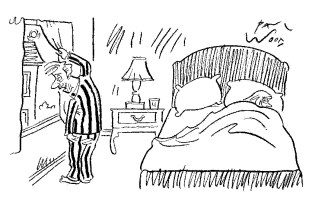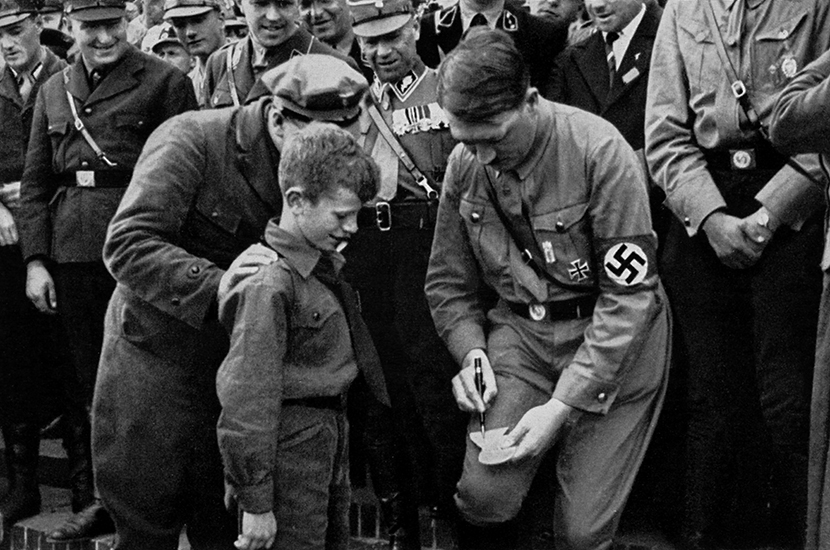In 2002 I was living in Berlin. One day my upstairs neighbour Peter told me he had just returned from outside the Hotel Adlon, having seen the self-proclaimed ‘King of Pop’ casually dangling a baby from a third-floor window. Peter was not there among the onlookers as a Michael Jackson fan but rather as a committed autograph collector and dealer, accustomed to haunting stage doors and hotel entrances when celebrities visited the city, tipped off by specialist monthly news-sheets giving the names, dates and locations of likely suspects. He failed to secure a signature that day, but at least witnessed one of the more notorious examples of hands-on parenting of recent decades.
The world of the autograph dealer can seem like a secret fraternity, with its own terminology and numerous pitfalls for the unwary novice. Some stars flatly refuse to give autographs, and because of the money to be made, the market is plagued by forgeries. A seasoned professional once told me that James Dean fakes were rife because the actor enjoyed just a very brief window of stardom; so the only example he would trust would be on a studio contract or other legal document with impeccable provenance.

Two Hitlers and a Marilyn is Adam Andrusier’s memoir of his gradual entry into this esoteric field, tracing his semi-accidental path from knocking on the door of Ronnie Barker’s home in the 1980s as an autograph-hunting ten-year-old, to setting up in business in his twenties as a dealer in rare signatures and documents, encountering, however briefly, the likes of Liz Taylor, Miles Davis and Monica Lewinsky.
This comic coming-of-age story is played out against the nicely described background of Andrusier’s family life in the north London Jewish community, his parents’ slowly unravelling marriage and his complex relationship with his father — a man who is not particularly religious but collects vintage postcards of European synagogues destroyed by the Nazis and does comic turns at social events dressed up as a rabbi or an SS officer.
Andrusier’s father also displays a keen interest in 1950s rock’n’roll, so that the music and lives of singers such as Buddy Holly, Eddie Cochran and the Everly Brothers pepper his conversation throughout the book. At one point he even invents a dance routine that consists of him ‘fully dressed as a Hassid: false beard, fur-rimmed shtreimel and a long black coat’ lip-synching to Little Richard’s ‘Good Golly Miss Molly’. In the acknowledgements, Andrusier thanks his father for ‘his big-hearted reaction to this book’, which is understandable, given some of the less than flattering memories recorded here.
The autograph dealer’s world is like a secret fraternity, with many pitfalls for the unwary novice
Once the young Adam becomes involved in the world of memorabilia fairs and autograph dealers, he learns to distinguish ‘secretarials’ (bogus signatures written by a star’s office staff in response to fan letter requests), ‘autopens’ (machine-signed items — an option much favoured by JFK, Ronald Reagan and most Nasa astronauts) and imitation signatures simply printed onto the surfaces of mass-produced photos. The narrative recreates verbatim conversations from some years ago, which mostly works well; but in the case of those between dealers, the compulsive urge to explain the identity of each and every celebrity for the reader’s benefit renders such exchanges unrealistic. For example, when two of them discuss an autographed Sean Connery still, the owner says: ‘Gert Fröbe’s signed too — you know, the one who played Goldfinger.’ Considering that names, faces and career details are these people’s livelihoods, anyone trading regularly in James Bond memorabilia unaware of such basic information should give up right there and go home.
This is an engaging and well-told tale, especially in the scenes of the author’s burgeoning on-off romance with his girlfriend Rachel, and also those involving his mother. However, the reader’s confidence is undermined at the beginning by a preliminary note which states: ‘Some details of this story have been altered, including elements of characterisation, names, dates, places and events.’ This raises the uncomfortable question after each witty anecdote: did this actually happen?
In addition to studying music at Cambridge, Andrusier also completed the Creative Writing MA at UEA. So is this an autobiography, or in some way fiction ‘inspired by a true story’ — to employ that grim Hollywood phrase that strikes terror to the heart? Indeed, Zadie Smith, a long-time friend of the author, had already borrowed some of the details of Andrusier’s life and profession for the title character of her 2002 novel The Autograph Man. He proudly states this on his website, where at the time of writing you can buy genuinely rare memorabilia such as a 1938 letter from Billie Holiday, an earlier one from Rasputin or a bank-loan document signed by Chicago’s most famous tax avoider, Al Capone — yours for a bracing £22,500.
It’s all a long way from Ronnie Barker’s front door.






Comments